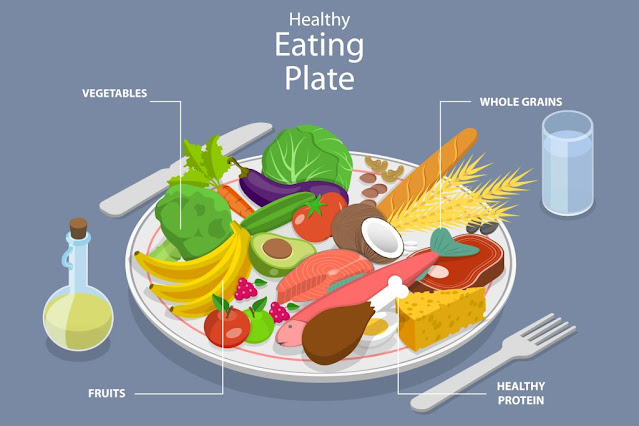
There are a lot of different ways to approach nutrition. Some people
focus on eating healthy foods, while others worry more about getting the
right mix of nutrients. And then there are those who simply want to
lose weight.
No matter what your goal is, there’s a nutrition
plan out there for you. But with so many options available, it can be
tough to know where to start. So let’s take a look at the basics of
nutrition and see how you can create a plan that works for you.
What is nutrition? Nutrition is the study of food and how it affects
the body. It looks at how food provides energy for the body and how the
body uses that energy.
Nutrition also looks at how different nutrients in food help the body to function properly.
What Do We Mean by Nutrition?
When we talk about nutrition, we’re referring to the process of providing our bodies with the food and nutrients they need to function properly. This includes everything from the food we eat, to the supplements we take, to the water we drink. It’s important to remember that nutrition is not a one-size-fits-all proposition.
What works for one person might not work for another. That’s why it’s so important to consult with a registered dietitian or other qualified health professional when making decisions about your diet and nutritional needs.
What are 7 Types of Nutrition?
There are seven types of nutrition: carbohydrates, fats, proteins, water, vitamins, minerals, and fiber. Carbohydrates are the body’s main source of energy.
Fats are also an important source of energy for the body. They help to protect the organs and keep the body warm.
Proteins are essential for the growth and repair of tissues. They can be found in meats, poultry, fish, beans , tofu , eggs , and nuts . Water is essential for all cells and organs to function properly.
It helps to carry nutrients to the cells and removes waste from the body. Vitamins are needed in small amounts for the body to function properly. Vitamins can be found in fruits , vegetables , grains , dairy products , and meat .
Fiber is a type of carbohydrate that the body cannot digest. It helps to add bulk to the stool and aids in bowel movements .
What is Nutrition What is Its Importance?
Nutrition is the study of how food and drink affect our health. It looks at how much we need to eat and drink, which nutrients we need and where we can get them from. It also looks at how our diet can help or harm our health.
The importance of nutrition is vast. Good nutrition plays a vital role in maintaining our overall health and well-being. It helps to protect us from chronic diseases such as heart disease, stroke, cancer and diabetes.
Eating a healthy diet can also help to reduce your risk of developing some mental health conditions such as anxiety and depression. Nutrition is also important for keeping our bones, muscles and organs healthy and strong.
What are the 5 Main Nutrition?
The 5 main nutrients are carbohydrates, proteins, fats, vitamins, and minerals. Carbohydrates are the body’s main source of energy and are found in foods like bread, pasta, rice, and potatoes. Proteins are needed for the growth and repair of tissues and can be found in meat, poultry, fish, eggs, and dairy products.
Fats provide the body with energy and help to absorb vitamins. They are found in oils, butter, margarine, meats, and nuts.
Nutrition Food
When it comes to nutrition, there are a lot of different opinions out there. It can be hard to know what to believe and who to trust. But one thing that everyone can agree on is that food is essential for our health and well being.
There are many different nutrients that our bodies need in order to function properly. These include proteins, carbohydrates, fats, vitamins, minerals, and water. We get most of these nutrients from the food we eat.
That’s why it’s important to choose foods that are nutritious and will give our bodies what they need to stay healthy. If you’re not sure where to start when it comes to eating more nutritiously, try focusing on adding more fruits, vegetables, and whole grains into your diet.
Additionally, they tend to be low in calories and fat which makes them great choices if you’re trying to lose weight or maintain a healthy weight. Of course, no single food can provide all of the nutrients we need so it’s important to eat a variety of different foods from each of the major food groups every day. By doing this you’ll be sure to get all the nutrients your body needs for optimal health!
A new study has found that poor nutrition is a major factor in the development of Alzheimer’s disease. The study, conducted by researchers at the University of Oxford, looked at data from over two thousand people with Alzheimer’s and found that those who had lower levels of vitamin D and omega-3 fatty acids were more likely to develop the disease. The findings suggest that improving diet could be a key factor in preventing Alzheimer’s, as well as other forms of dementia.
Eating plenty of fruits, vegetables, and whole grains, as well as getting enough omega-3 fatty acids from fish or supplements, is essential for keeping your brain healthy as you age.




.jpg)

.jpg)




0 Comments